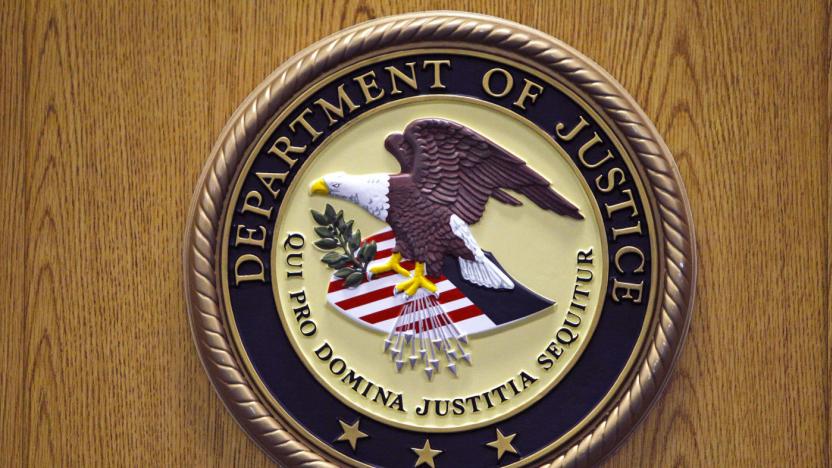fisc
Latest

Mystery internet company challenges NSA’s mass surveillance order
Thanks to a newly-declassified document, we know that an unnamed tech company refused to comply with NSA orders to let the agency spy on the company's client users. It's the first known case of an organization from the industry outright rejecting such a request.

US intelligence wants to make a key foreign surveillance law permanent
The directors of America's federal intelligence agencies appeared before the Senate Intelligence Committee on Wednesday in an effort to convince the governing body to permanently extend Section 702 of the Foreign Intelligence Surveillance Act, a law that enables the federal government to monitor the communications of non-US citizens on foreign soil who are communicating with Americans here in the United States regarding matters of national security. Essentially, it enabled the intelligence community to eavesdrop on conversations between suspected terrorists and their associates, even if some of them happen to be US citizens.

NSA will stop illegally collecting American emails
The National Security Agency has enjoyed relatively broad authority to monitor communications among suspected terrorists and their associates, even when those people happen to be American citizens and even without a warrant. However, The New York Times reports the NSA is stopping one of its most controversial practices: the collection of Americans' international emails and text messages that mention a foreigner under surveillance.

US surveillance court didn't reject a single spy order last year
For years, critics have claimed that the US' Foreign Intelligence Surveillance Court is a pushover: it's allegedly so reluctant to reject spying orders that it's little more than a speed bump for the FBI and NSA. True or not, that reputation isn't about to change any time soon. Reuters has obtained a Justice Department memo showing that FISC didn't reject any of the 1,457 surveillance order requests it received in 2015, even in part. That's no different than in 2014, but it suggests that the court isn't any less forgiving in an era of tighter government controls.

Lawsuit asks Justice Department to reveal decryption orders
Do you want to know whether or not US officials have ever forced a company to decrypt data to aid in an investigation? So does the Electronic Frontier Foundation. The civil liberties group has sued the Department of Justice to make it reveal whether or not it has ever used secret Foreign Intelligence Surveillance Court orders to make companies decrypt communications. The EFF had used a standard Freedom of Information Act request beforehand, but didn't get anything. FISC says that what "potentially responsive" documents it found are exempt from disclosure, since they were created before the USA Freedom Act took effect.

US fines over data requests would have destroyed Yahoo in a year
The US government's threat that it would fine Yahoo $250,000 per day back in 2008 was bad enough by itself, but declassified documents show that the penalties could easily have been much, much worse. Marc Zwillinger and Jacob Sommer (who were on Yahoo's side in the case) note that $250,000 was merely the baseline, and that the requested fines would double for every week that Yahoo refused to hand over user data. There wasn't a ceiling, either. At that rate, holding out for any significant amount of time would have been impossible -- Yahoo would have lost all of its assets, or $13.8 billion, in just over a year. As such, the fine wasn't so much a punishment as a weapon that forced the internet firm to comply with a surveillance order it was planning to contest in court.

Judges ruling on secret telecoms cases found to own Verizon stock
It looks as if the judges who operate the gateway between the NSA and the cable companies may not be as impartial as their job description requires them to. An investigation by Vice has revealed that several judges who sit on the Foreign Intelligence Surveillance Court are also Verizon shareholders. Big Red, of course, has previously tried to fight metadata collection, but isn't entitled to have a say, or participate in these secret hearings. Naturally, judges are bound by a conflict of interest law that requires them to step away from any case where their judgment could be materially affected, which may not apply in this situation. Still, it doesn't seem the wisest thing to do if you're trying to maintain an unimpeachable reputation for fairness, does it?

Verizon fought the NSA's metadata collection program but lost anyway
It looks like Verizon's concerns about government snooping go beyond publishing transparency reports -- but also haven't had much of a tangible effect. The Washington Post understands through both a declassified ruling and sources that Big Red quietly challenged the constitutionality of the NSA's call metadata collection in January, only to be shot down by the Foreign Intelligence Surveillance Court in March.

Dropbox backs petitions to disclose exact national security request numbers
The call for greater US government transparency just got louder: Dropbox has filed a Foreign Intelligence Surveillance Court brief that endorses petitions to disclose exact national security request numbers. Much like LinkedIn, Dropbox believes that limiting disclosures to broad ranges hurts transparency by implying that smaller firms get as many requests as larger rivals. The ban on exact figures also violates a First Amendment right to publish specific information, according to the cloud storage provider. We likely won't know the effectiveness of the brief for some time -- or ever, if the court proceedings remain a secret -- but Dropbox can at least say that it made its case.

LinkedIn petitions court to provide more details regarding government data requests
It's not just the heaviest of the internet heavyweights pushing for greater government transparency. LinkedIn has filed its own petition with the US Foreign Intelligence Surveillance Court asking for the ability to publish the exact number of national security requests that it gets. The social network argues that restricting data request numbers to vague ranges is not only pointless, but misleading -- the figures imply that the government wants as much data from LinkedIn as it does from larger firms. There's no certainty that the court will grant the company's wish, but its petition adds volume to an increasingly louder chorus.

Google, Facebook and Yahoo petition court to disclose government data requests
It's not every day you see Google, Facebook and Yahoo aligned on a issue, but a push toward increased governmental transparency is just the sort of cause that'll put competing web companies on the same outraged page. All three noted today through their respective channels that they've filed petitions with the Foreign Intelligence Surveillance Court (FISC) to disclose the number of requests the government has issued for user data under national security statutes. Says Yahoo general counsel Ron Bell: We believe that the U.S. Government's important responsibility to protect public safety can be carried out without precluding Internet companies from sharing the number of national security requests they may receive.





